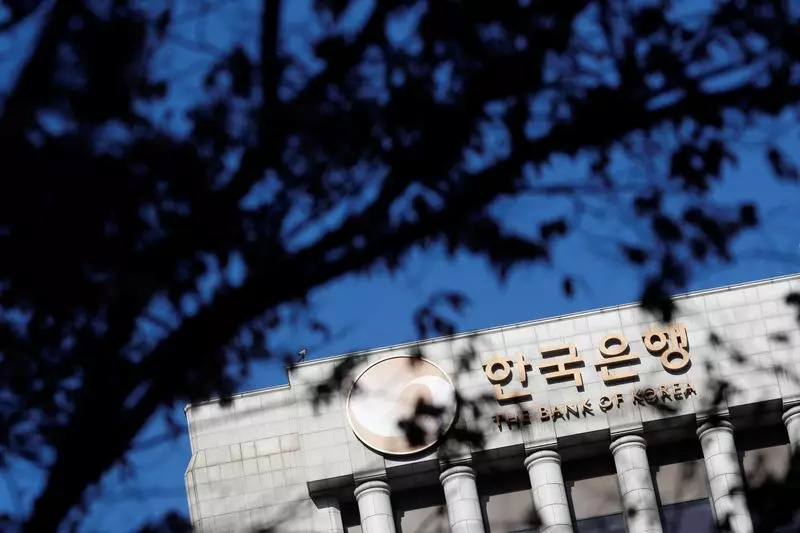South Korea’s central bank recently decided to maintain interest rates at a 15-year high, citing concerns over inflationary pressures despite stronger-than-expected economic growth. The Bank of Korea Governor, Rhee Chang-yong, emphasized the need to keep policy restrictive to combat sticky inflation and sustain economic stability. This decision reflects the delicate balance between supporting growth and managing inflation in a challenging economic environment.
The Bank of Korea revised its growth forecast for the year to 2.5% following strong first-quarter performance, marking the fastest pace of growth in two years. While the Bank maintained its inflation outlook for the year at 2.6%, concerns over the impact of rapid growth on inflation dynamics remain. The central bank’s proactive stance underscores the importance of maintaining price stability while supporting economic expansion.
Following the announcement, South Korea’s policy-sensitive bond futures saw a modest increase, signaling market relief over the Bank’s inflation outlook. Analysts predict a possible rate cut in the fourth quarter, reflecting expectations of monetary policy adjustments to support growth amidst evolving economic conditions. The debate around the Federal Reserve’s interest rate decisions adds further complexity to South Korea’s monetary policy outlook, given the potential impact on the nation’s currency and inflation rates.
While South Korea’s inflation rate showed signs of easing in April, it remains above the Bank of Korea’s target rate of 2%. The challenge for policymakers lies in managing inflation expectations while fostering economic growth. Median forecasts suggest a possible rate cut in the fourth quarter, as analysts reassess the timing of monetary policy adjustments in response to changing economic indicators.
South Korea’s central bank decision to maintain interest rates at a 15-year high reflects the ongoing challenges of balancing economic growth and inflationary pressures. The cautious approach adopted by the Bank of Korea underscores the importance of maintaining stability in the face of uncertain global economic conditions. As policymakers navigate through evolving economic dynamics, the focus remains on sustaining growth momentum while ensuring price stability for the long term.

